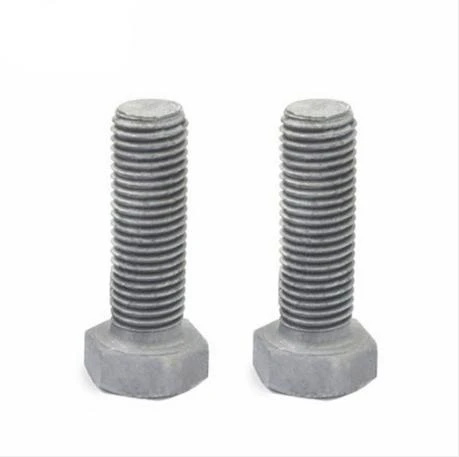

self tapping screws stainless
Dec . 12, 2024 11:28 Back to list
self tapping screws stainless
The Advantages of Stainless Steel Self-Tapping Screws
When it comes to construction and assembly, choosing the right fastener is crucial to achieving a durable and reliable outcome. Among various types of screws available in the market, stainless steel self-tapping screws have gained popularity due to their unique properties and advantages. This article explores the features, benefits, and applications of stainless steel self-tapping screws.
What are Self-Tapping Screws?
Self-tapping screws are a special type of screw that can create their own thread as they are driven into materials, eliminating the need for a pre-drilled hole. This feature makes them a favorite among builders and manufacturers as it simplifies the assembly process and reduces labor costs. The design of self-tapping screws is tailored to penetrate materials like wood, plastic, and metal effectively.
Benefits of Stainless Steel
One of the primary reasons for using stainless steel in fasteners is its exceptional corrosion resistance. Stainless steel is an alloy composed of iron, carbon, and a minimum of 10.5% chromium. This composition provides a protective layer that prevents rust and degradation, making stainless steel screws suitable for outdoor and marine applications where exposure to moisture is common.
In addition to corrosion resistance, stainless steel exhibits excellent strength and durability. It can withstand high levels of stress and pressure, making it ideal for heavy-duty applications. Unlike conventional screws that might bend or break under strain, stainless steel self-tapping screws maintain their integrity, ensuring that assembled structures remain secure over time.
Versatility in Applications
self tapping screws stainless

Stainless steel self-tapping screws are versatile and can be used in a variety of applications. They are commonly found in the construction industry for fastening components like metal sheets, wood, and plastic. Their adaptability makes them suitable for numerous projects, ranging from residential building construction to automotive assembly and even electronic devices.
In particular, stainless steel self-tapping screws are beneficial in areas where hygiene is essential. For example, in the food processing and medical industries, where cleanliness is a major concern, stainless steel screws prevent bacterial growth and contamination, thus ensuring safety and compliance with health regulations.
Installation and Efficiency
Another significant advantage of stainless steel self-tapping screws is their ease of installation. Because they do not require pre-drilling, the assembly process is quicker and requires fewer tools. This efficiency translates to cost savings, especially in large-scale operations. Additionally, the precision design of these screws allows for a strong hold, minimizing the risk of loosening over time.
It is also worth noting that stainless steel self-tapping screws are available in various sizes and types, allowing for customization according to specific project needs. Whether one requires screws with different head styles for aesthetic purposes or varied lengths for different material thicknesses, there is a suitable stainless steel self-tapping screw for nearly every application.
Conclusion
In summary, stainless steel self-tapping screws represent an optimal choice for a wide range of applications due to their corrosion resistance, durability, and ease of use. Their ability to create threads without the need for pre-drilling not only simplifies the installation process but also enhances efficiency on the job site. With applications spanning construction, automotive, and food processing industries, these screws continue to be a fundamental component in ensuring strong and reliable connections in various projects. For anyone seeking quality fasteners with a long lifespan, stainless steel self-tapping screws are undoubtedly worth considering.
Latest news
-
High-Strength Hot-Dip Galvanized Bolts-Hebei Longze|Corrosion Resistance&High Strength
NewsJul.30,2025
-
Hot Dip Galvanized Bolts-Hebei Longze|Corrosion Resistance&High Strength
NewsJul.30,2025
-
Hot Dip Galvanized Bolts - Hebei Longze | Corrosion Resistance, High Strength
NewsJul.30,2025
-
High-Strength Hot Dip Galvanized Bolts-Hebei Longze|Corrosion Resistance, Grade 8.8
NewsJul.30,2025
-
Hot Dip Galvanized Bolts-Hebei Longze|Corrosion Resistance,High Strength
NewsJul.29,2025
-
High-Strength Hot Dip Galvanized Bolts - Hebei Longze Metal Products Manufacturing Co., Ltd.|corrosion resistance&high strength
NewsJul.29,2025

